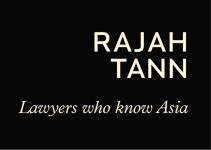8 October, 2016
Employees’ Social Security (Amendment) Act 2016
The amendments to the Employees Social Security Act 1969 in the Employees' Social Security (Amendment) Act 2016 have entered into force as of 1 June 2016. Prior to the amendments, only employees earning less than RM3,000.00 per month are required to contribute to Social Security Organisation ("SOCSO").
With the coming into force of the Employees' Social Security (Amendment) Act 2016, SOCSO contributions are now mandatory for all employees who are employed under a contract of service or apprenticeship in the private sector and contractual/temporary staff of federal/state government as well as federal/state statutory bodies regardless of their salary. Hence, all employers who are not yet registered with SOCSO but do have employees are required to register their business and employees with SOCSO irrespective of the actual wages of the employees unless such employees fall within the First Schedule of the Employees Social Security Act 1969. If the wages of an employee at any time exceeds RM4,000.00 per month, his wages will be deemed to be a monthly remuneration of RM4,000.00 for the purposes of computing the contribution.
Under the Employees Social Security Act 1969, contributions in respect of an employee shall comprise of contribution payable by the employer and contribution payable by the employee. This means that employers will face an increase in operating cost as employers will have to start making SOCSO contributions for all its employees.
Intellectual Property Case Updates
The High Court recently rendered two significant cases on intellectual property. In Doretti Resources Sdn Bhd v Fitters Marketing Sdn Bhd & Ors, the High Court held that in order to make out a case for trade mark infringement, a defendant must have used an impugned mark leading to likelihood of deception and confusion among ordinary consumers. In this case, the High Court held that a claim against the 4th and 5th defendants was unsustainable as the 4th and 5th defendants sold the alleged counterfeit products to the 1st and 2nd defendants (which were retailers) based on their request and not to members of the public.
In another case, Restoran Oversea Holdings Sdn Bhd v Overseas Seafood Restaurant Sdn Bhd, the plaintiff, owner of two registered trademarks and alleged that the defendant had been promoting its business (by the use of business cards and advertisement) using the defendant's business name which was identical to the plaintiff's two registered trademarks. The defendant's counterclaim for invalidation of the plaintiff's registered trademarks to which the plaintiff applied to strike out such counterclaim. The High Court allowed the plaintiff's striking out application and held that the defendant was not a "person aggrieved" by the entry of the trademarks owned by the plaintiff within Section 45 of the Trade Marks Act 1976. Thus, the defendant is without the legal standing to institute its counterclaim under the said provision. The High Court curiously based its decision on the finding that the defendant was not using a 'mark' but "simply a name – a business name" although Section 3(1) of the Trade Marks Act 1976 defines a 'mark' to include device, brand, heading, label, ticket, name, signature, word, letter, numeral or any combination thereof.
High Court Allows MyCC to Challenge CAT's Decision to Set Aside RM10 Million Fine Imposed on MAS and AirAsia Bhd
On 25 July 2016, the High Court granted leave to the Malaysia Competition Commission’s ("MyCC") to challenge the decision by Competition Appeal Tribunal ("CAT") setting aside the landmark MyCC decision where Malaysian Airline System Berhad ("MAS") and AirAsia Berhad ("AirAsia") were fined RM10 million respectively for infringing the Competition Act 2010 in respect of market sharing. MyCC filed for a judicial review on the decision by CAT.
For further information, please contact:
Eng Beng SC, Partner, Rajah & Tann
eng.beng.lee@rajahtann.com





